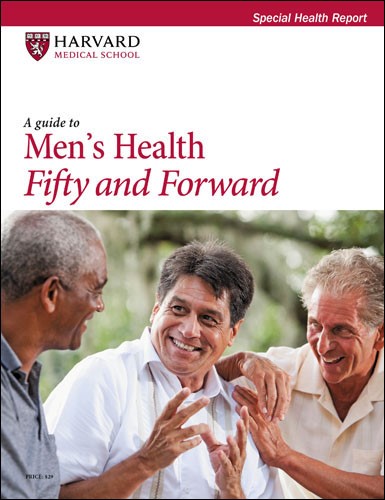Hot flashes in men: An update

Men who see their female companions flush and sweat when they reach a certain age are probably glad that they are not subject to postmenopausal hot flashes. But hot flashes are not just a "woman's problem." In fact, hot flashes in men can be troublesome, but treatment can help.
Who gets hot flashes — and why
Doctors understand the who more than the why. In both men and women, hormones are to blame. About 70% of women get hot flashes at the time of menopause, when estrogen levels plummet.
In men, the problem is testosterone. Males don't experience an abrupt drop in the hormone. In fact, although testosterone levels trickle down by about 1% a year after the age of 40, most men maintain levels within the normal range, and nearly all retain enough testosterone to prevent hot flashes.
The exception is men who've received androgen deprivation therapy for prostate cancer. The growth of prostate cells is stimulated by testosterone, and treatments that reduce levels of the hormone or block its actions in the body can help treat the disease. Androgen deprivation can be a temporary measure to boost the effect of radiation therapy (neoadjuvant therapy), or it can be a long-term treatment for advanced prostate cancer. In the past, this was accomplished by surgical castration or by administering estrogen pills. As of mid-2005, though, treatment usually relies on injections that reduce testosterone production, such as leuprolide (Lupron) or goserelin (Zoladex), or drugs that block testosterone's effects on tissues, such as bicalutamide (Casodex).
Hot flashes in men plague about 70%–80% of men who receive androgen deprivation. Low testosterone is the culprit, but scientists don't know just how reduced sex hormone activity produces the problem. The thermal control center in the part of the brain known as the hypothalamus appears responsible. The nervous system sends out signals that cause blood vessels in the skin to widen, producing flushing and warmth. To counter the rise in skin temperature, the body rapidly converts a warm flush to a cold, clammy sweat.
Hot flash Symptoms
Hot flashes feel the same to men and women: A sudden feeling of warmth or flushing that is most intense over the head and trunk, often accompanied by visible redness of the skin and by sweating, which can be profuse. Hot flashes are most common at night. They are usually brief, averaging four minutes, but often leave cold sweat behind. Flashes may be infrequent and mild or quite troublesome, sometimes occurring 6 to 10 times a day. Some people, both male and female, report anxiety, palpitations, or irritability.
Most women get over their hot flashes in a year or so, even without therapy, but some are troubled for years. Men who develop flashes during temporary androgen deprivation usually recover within three or four months of stopping treatment. Doctors often tell patients on permanent androgen deprivation that they will also get over the problem, but most men don't. In one study, over 40% of men still had flashes after more than 8 years of treatment. In another, 72% of patients said the hot flashes interfered with sleep and 59% reported they interfered with the ability to enjoy life. Fortunately, new treatments can help.
Treatment for male hot flashes
Men with prostate cancer cannot take testosterone, but they can use female hormones for hot flashes. In one study, 83% of men who tried estradiol (an estrogen) reported relief. But more than 40% experienced breast swelling or tenderness, and the trial was too brief to exclude the possibility of cardiovascular side effects. Similar studies of megestrol (Megace) and medroxyprogesterone (Provera), both members of the other group of female hormones (progesterones), have reported about 80%–90% reductions in hot flashes. But the side effects can include bloating and weight gain.
Hormones can help, but other treatments may be just as successful with fewer side effects. Two approaches have helped both men and women. One involves antidepressants. Selective serotonin reuptake inhibitors (SSRIs) such as paroxetine (Paxil) have been effective, as has a related antidepressant, venlafaxine (Effexor). Both types are well tolerated; venlafaxine can sometimes raise the blood pressure, and SSRIs can cause sexual dysfunction, but that's not an issue for most men on androgen deprivation.
Men and women
Most men experience hot flashes vicariously, if at all. But men are not immune; if nothing else, the occurrence of hot flashes in some men with prostate cancer should remind all men to stay cool when females flush
Disclaimer:
As a service to our readers, Harvard Health Publishing provides access to our library of archived content. Please note the date of last review or update on all articles.
No content on this site, regardless of date, should ever be used as a substitute for direct medical advice from your doctor or other qualified clinician.













